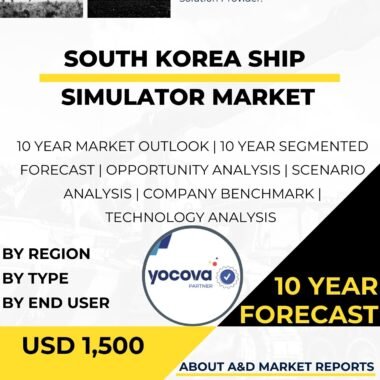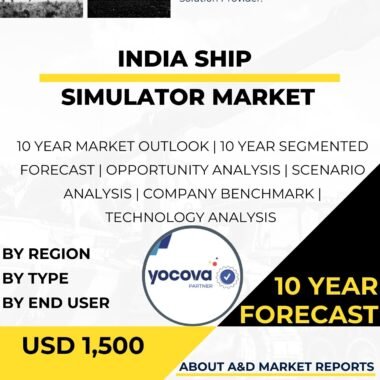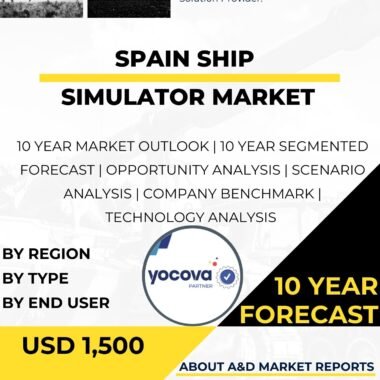Description
Overview of the France Ship Simulator Market
The France ship simulator market plays a key role in training maritime personnel safely and efficiently. Simulators replicate real-life conditions, allowing seafarers to practice navigation, maneuvering, and emergency responses. France’s extensive maritime industry relies on these tools to enhance operational efficiency and workforce competence. Ship simulators reduce risks while building confidence among trainees. They serve both commercial shipping and naval operations. Advanced technologies make these simulators realistic and effective. Continuous innovation keeps the market competitive globally.
Market Drivers
France’s long coastline and busy ports drive demand for ship simulators. The Atlantic Ocean, English Channel, and Mediterranean present complex maritime challenges. Simulators train captains, engineers, and crews for adverse weather, crowded waterways, and emergencies. Risk-free training environments improve decision-making and situational awareness. The commercial and defense sectors both invest heavily in simulator-based training. Compliance with international regulations, such as IMO standards, also boosts demand. Maritime safety priorities reinforce market growth.
Technological Advancements
Modern ship simulators in France feature high-fidelity visual displays, motion platforms, and advanced physics engines. These technologies create realistic maritime environments for trainees. Artificial Intelligence (AI) and Machine Learning (ML) enhance simulation capabilities. AI-driven virtual vessels respond dynamically to changing conditions and user inputs. Trainees can interact with different ship types and scenarios. Machine learning generates unpredictable challenges, improving preparedness. These advancements make training more immersive and effective.
Collaborative and Multi-Vessel Training
France emphasizes collaborative training through multi-vessel simulation exercises. Simulators connect multiple units across locations in a shared virtual environment. Trainees practice teamwork, coordination, and communication in complex scenarios. These exercises mimic real-world maritime operations, including shipping convoys and emergency response drills. Multi-vessel simulations improve operational efficiency and decision-making. Both commercial and naval personnel benefit from this approach. Collaborative training continues to shape the market’s future.
Defense Sector Applications
The French Navy drives significant demand for ship simulators. Naval personnel use simulators to rehearse complex maneuvers, combat scenarios, and crisis management. Simulators allow mission practice without operational risk, enhancing readiness. Other defense agencies and maritime security units also use simulator-based training. Advanced systems help prepare crews for unpredictable maritime threats. The defense sector’s investment stimulates innovation in simulator technology. Military training needs remain a major market driver.
Civilian Sector Adoption
Maritime schools, training institutions, and shipping companies increasingly use simulators in France. Trainees acquire essential skills and certifications before joining the workforce. Commercial shipping companies use simulators for ongoing crew training and assessment. Port authorities deploy simulators for operational planning and safety drills. These applications improve maritime efficiency and reduce accident risks. Simulator-based training ensures compliance with regulations and environmental standards. Civilian adoption broadens the market’s reach and impact.
Future Outlook
The future of the France ship simulator market is promising and technology-driven. AI, motion systems, and realistic scenarios will continue to evolve. Demand will grow as maritime operations become more complex. Naval modernization and commercial fleet expansion will boost simulator adoption. Government support and private sector investment will sustain innovation. Simulators will increasingly integrate environmental and safety training modules. The market is poised for further growth, providing sophisticated training solutions for diverse maritime needs.




